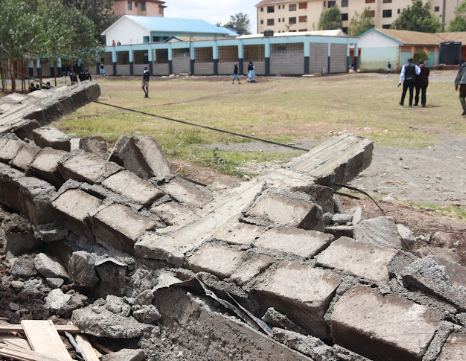The pervasive challenge of land grabbing has cast a lingering shadow over the nation’s development, intensifying social tensions. Rooted in historical injustices and contemporary greed, this issue persists, perpetuating the marginalization and oppression of numerous communities.
Historically, land grabbing in Kenya traces back to the colonial era, where vast expanses of land were forcibly seized from local communities. Post-independence, influential individuals and entities have exploited legal loopholes, corruption, and weak land governance structures to illegitimately acquire land.
Recent reports indicate a worsening situation, with vulnerable communities such as indigenous groups and small-scale farmers facing unlawful land acquisitions. These activities often involve dubious legal maneuvers, coercion, or outright violence, leaving affected individuals with limited recourse.
The 2003 Ndung’u Land Commission Report, chaired by former Chief Justice Andrew Hayanga Ndung’u, delved into the illegal allocation of public land in Kenya. Uncovering widespread corruption and irregular practices, the report exposed instances where public land was acquired and allocated without due process, leading to the dispossession of legitimate landowners and communities.
The consequences of land grabbing are severe, resulting in displaced communities grappling with homelessness, loss of livelihoods, and severed cultural ties to ancestral lands. Insecure land tenure also impedes access to essential services like education and healthcare, perpetuating cycles of poverty and inequality.
Civil society organizations and activists advocate for reforms to address this pervasive issue. They call for enhanced legal protections for land rights, transparent land governance, and the prosecution of those involved in illegal land acquisitions. Additionally, there are appeals for fair compensation and resettlement of affected communities.
Internationally, the issue has attracted attention, with human rights organizations and foreign governments urging Kenya to take decisive action against land grabbing. Foreign investment in land acquisition is also under scrutiny, emphasizing the need for responsible and ethical practices that respect local land rights.
Addressing the root causes of land grabbing necessitates legislative reforms, robust law enforcement, community empowerment, and transparent land governance. A collective effort from all stakeholders, including the government, civil society, and the international community, is crucial to safeguard the rights of Kenyan citizens and ensure equitable access to land. As Kenya progresses on its development journey, resolving the issue of land grabbing emerges as a pivotal step towards fostering a more just and equitable society for all citizens.
















